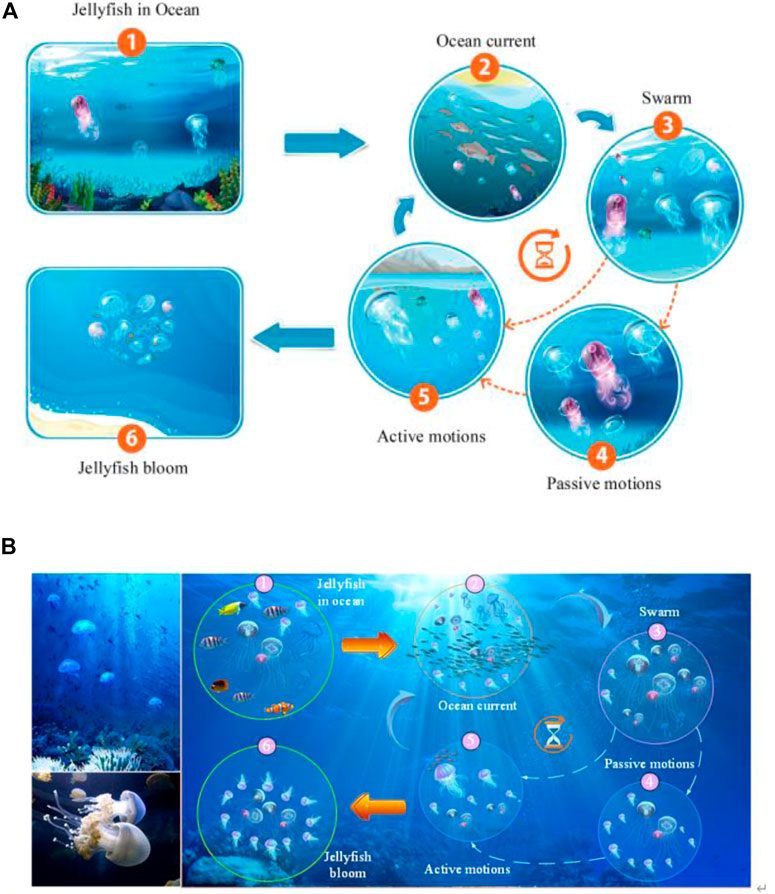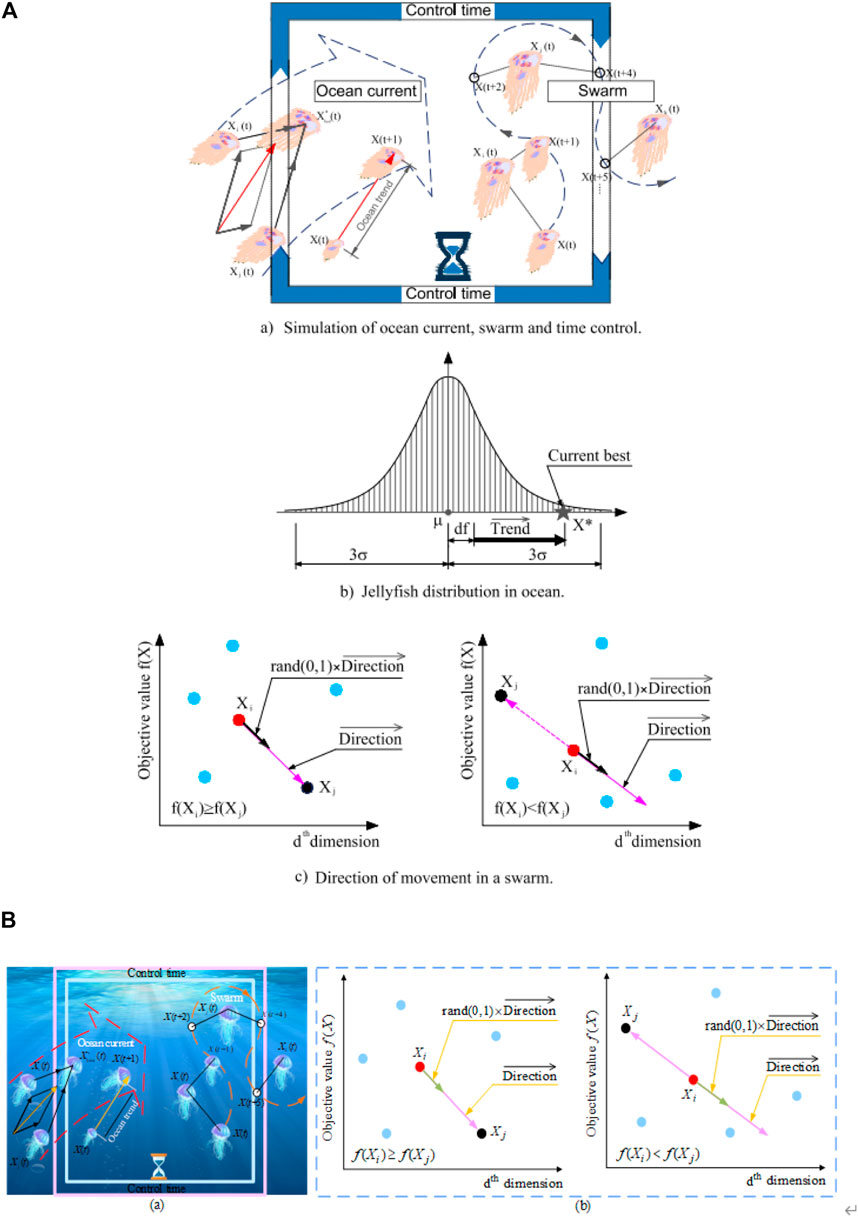- 1School of Information and Electrical Engineering, Shandong Jianzhu University, Jinan, China
- 2School of Information Engineering, Chang’an University, Xi’an, China
A Corrigendum on
Perturbation Observer Based Fractional-Order Control for SMES Systems Based on Jellyfish Search Algorithm
by Luo, K., Jiao, Y., and Zhu, J. (2021). Front. Energy Res. 9:781774. doi: 10.3389/fenrg.2021.781774
In the published article, there was a lack of rigorous figure citation and description of the original work developed by Chou, J.-S.; Truong, D.-N.’s (2021) entitled “A novel metaheuristic optimizer inspired by behavior of jellyfish in ocean” (Chou and Truong, 2021). The authors fully understand and agree with the outstanding performance of the jellyfish algorithm proposed by Chou, J.-S. and Truong, D.-N. in solving optimization problems, and respect the academic credits of the original authors to propose this excellent algorithm, as well as corresponding explicit illustration about its optimization mechanism. Therefore, the authors refer to the operation principles of the jellyfish algorithm (Chou and Truong, 2021) in Section 4 of the current paper. Chou, J.-S. and Truong, D.-N.’s work has been cited in Section 4.1 and Section 4.2.1 in the main text, however, the corresponding schematic figures related to the optimization principle’s introduction were not properly cited in error.
The corresponding figure source has now been correctly cited. Figure 3 demonstrates the original figure source (Chou and Truong, 2021) and our redecorated figure with citation (Luo et al., 2021) about the behavior of jellyfish in the ocean. Figure 4 illustrates the original figure source (Chou and Truong, 2021) and our redecorated figure with citation (Luo et al., 2021) about simulation of jellyfish behavior. Also, more textual descriptions and illustrations have been added to demonstrate the citation sources and academic credits from the original authors in the revised manuscript.

FIGURE 3. Jellyfish’s behavior in the ocean. (A) the original figure source and (B) redecorated figure with citation.

FIGURE 4. Simulation of Jellyfish behavior. (A) the original figure source and (B) redecorated figure with citation.
The authors apologize for this error and state that this does not change the scientific conclusions of the article in any way. The original article has been updated.
Publisher’s Note
All claims expressed in this article are solely those of the authors and do not necessarily represent those of their affiliated organizations, or those of the publisher, the editors and the reviewers. Any product that may be evaluated in this article, or claim that may be made by its manufacturer, is not guaranteed or endorsed by the publisher.
References
Chou, J.-S., and Truong, D.-N. (2021). A Novel Metaheuristic Optimizer Inspired by Behavior of Jellyfish in Ocean. Appl. Maths. Comput. 389, 125535. doi:10.1016/j.amc.2020.125535
Keywords: superconducting magnetic energy storage systems, distributed generation, fractional-order control, jellyfish search algorithm, perturbation observer
Citation: Luo K, Jiao Y and Zhu J (2022) Corrigendum: Perturbation Observer Based Fractional-Order Control for SMES Systems Based on Jellyfish Search Algorithm. Front. Energy Res. 10:887998. doi: 10.3389/fenrg.2022.887998
Received: 02 March 2022; Accepted: 14 March 2022;
Published: 31 March 2022.
Edited and reviewed by:
Siqi Bu, Hong Kong Polytechnic University, Hong Kong SAR, ChinaCopyright © 2022 Luo, Jiao and Zhu. This is an open-access article distributed under the terms of the Creative Commons Attribution License (CC BY). The use, distribution or reproduction in other forums is permitted, provided the original author(s) and the copyright owner(s) are credited and that the original publication in this journal is cited, in accordance with accepted academic practice. No use, distribution or reproduction is permitted which does not comply with these terms.
*Correspondence: Jiawei Zhu, amlhd2VpLnpodUBjaGQuZWR1LmNu
 Ke Luo
Ke Luo Yingying Jiao
Yingying Jiao Jiawei Zhu
Jiawei Zhu